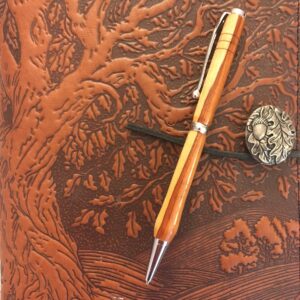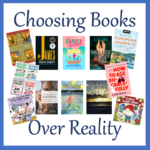I recently had the opportunity to work with an experienced editor to polish a piece for publication in her digital magazine, Spirited Voices. When the time arrived for our session, I heard my usual inner critics shouting at me to be fearful of negative feedback, insisting that I wasn’t good enough and to beware that my seemingly perfect piece would be torn apart!
It would have been easy to listen to those messages. Instead, I brushed those saboteurs off my shoulder, sent them to the time out corner and entered the editing session with an open heart.
I emerged with the realization that working with an editor is a blessing. Having someone who believes in my work and simply wants to make it so much better . . . that’s a gift. (Thank you, Darlene!)
 It’s also a process I now embrace. I’m much more willing to listen to the feedback, bend, flex, and question. I look forward to pushing and pulling on a piece that I’ve written, making it clearer, crisper, more accessible for the reader, truer to my intent. It’s a beautifully difficult process; a process that ultimately forces me to address those saboteurs and take full ownership of my message. An editor can assist but I own the pen.
It’s also a process I now embrace. I’m much more willing to listen to the feedback, bend, flex, and question. I look forward to pushing and pulling on a piece that I’ve written, making it clearer, crisper, more accessible for the reader, truer to my intent. It’s a beautifully difficult process; a process that ultimately forces me to address those saboteurs and take full ownership of my message. An editor can assist but I own the pen.
It’s been useful to apply this concept of ownership to my life narrative as well. After transitioning from the corporate world almost six years ago, there have been many, many times when I asked myself, what on earth am I doing? Who am I now? What made me think I could craft a new career? My saboteurs and inner critics were running wild. Many days, they stole my pen and ran off under the couch, or into the garden.
I knew full well their messages were deceitful and judgmental and got me off track. It took conscious effort to grab that pen back – demand the pen be in my hand – allowing myself to continue to write the narrative of my life.
But it’s hard.
So, when I had the opportunity to take a course by Shirzad Chamine, author of Positive Intelligence, I jumped in whole heartedly. His approach to identifying common saboteur messages within a solid framework allowed me to look at them objectively and say, Yes, I have that, that’s part of me, but I get to hold the pen here. I get to control whether those messages are running my life or not.
It’s been incredibly helpful for me as well as many of my clients. If you’re interested, this is his free assessment. I’d love to have you take it. Let me know what you think. Many of my clients report that it’s remarkably accurate and while their saboteurs continue to run off with their pens, the framework empowers them to take back control of their narrative and create their own unique story with greater awareness.
And with awareness, comes the freedom for me to ask each day . . .
What life are you writing? What story do you want to live into? Who holds your pen?
~~
[Note: The beautifully crafted hawthorn pen in the photo above was made by my cousin, Chris Covey. Her work can be seen here! And if you are interested in exploring your writing, check out Darlene Frank’s workshops.]





6 Responses
So interesting! I did take the self-assessment. I don’t want to share my results here but would be happy to share in a private conversation. Not a surprise to me or anyone who knows me, I’d imagine. But the most interesting thing is the insights it’s giving me into my fictional characters!
I love the idea of using saboteurs in character development!
I can sooooooo relate to much of what you’ve written about here, Korie. My favorite line: An editor can assist but I own the pen. Very empowering. And yes, I couldn’t agree more: working with Darlene as an editor is a very affirming experience. AMEN! For the record, I always enjoy reading what you write. (I’m especially sending this message to those inner critics/saboteurs!)
thank you, my friend!
Nice piece, Korie. I concur on the gifts of having an editor to help you. Meanwhile, that journal cover was a sweet blast from the past!
thanks, Fred 🙂 I love that journal!